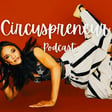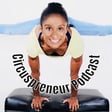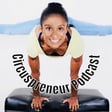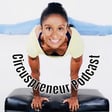
The Contemporary Circus Handbook with Eric Bates - Circuspreneur Podcast Ep.91
Please Sign & Share our @changeorg petition to support the Circus Arts Industry in a Historic way ! 🎪
Tell Congress to Support the National Endowment for the Arts in Recognizing the Circus Arts As An Official Art Form 👇🏽
https://www.change.org/CircusArtsRecognition
Purchase The Contemporary Circus Handbook-
https://modernvaudevillepress.com/contemporary
On this episode of the Circuspreneur Podcast, host @SheneaStiletto interviews author of The Contemporary Circus Handbook, Eric Bates. For those looking for Circus Holiday Gifts, this is a peak option to inspire Circus and Entrepreneur friends and family for the New Year.
Eric Bates started his Circus Arts career with Circus Smirkus, and went on to graduate from The National Circus School of Montreal in 2011. He has since performed for the world's leaders in a private show with Cirque du Soleil at G7, on Broadway with The 7 Fingers, and in 40 countries around the world. He has a Guinness World Record for his juggling, as well as two medals and the audience choice award at the Cirque de Demain Circus Festival for his cigar box juggling and russian bar acts. He is the cofounder of Cirque Barcode, with whom he has created 3 shows: Sweat & Ink, Branché and See You Down the Road. He is the author of The Contemporary Circus Handbook, which pulls back the curtain on the process of making shows of all different sizes.
The Contemporary Circus Handbook info:
@modernvaudevillepress Publisher , The Contemporary Circus Handbook.
@thomwalljuggler runs @modernvaudevillepress
@kimzyn & @domaskbz Book Editors




